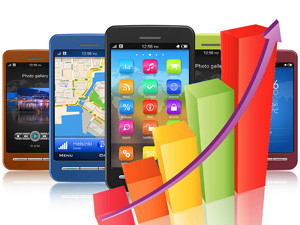
The Mobile Entertainment Forum (MEF), the global community for mobile content and commerce, is set to launch the findings of its fourth annual Global Consumer Survey next month at its annual conference, MEF Global Forum 2014.
In the meantime, here is a sneak preview of 11 mobile facts from the report, which analyses consumer behaviour from 15 000 respondents in 15 countries - all of which will be represented at MEF Global Forum.
1. 44% of Africans now transfer airtime as currency.
2. Consumers in Asia (63%) and the Middle East (52%) are more likely to be aware of wearable devices than their European (43%) or US (42%) counterparts.
3. 62% of consumers in United Arab Emirates have seen a medical professional use a mobile device during diagnosis or treatment. In the UK it is just 31% and US it is 37%.
4. Germany is an early adopter of in-app purchases which stands at 44% versus a global average of 19%.
5. Kenya remains the king of mobile banking, with 93% of consumers using their mobile device to perform banking, but there is also significant usage in the Middle East (78%) and Nigeria (85% up from 76% in 2013).
6. Kenyans are well aware of the benefits of m-education, with 45% saying it makes learning more convenient (versus a global average of 33%) and 39% appreciating its enabling of remote learning (versus a 26% global average).
7. European mobile users are not so keen on m-education. Only 16% say it makes learning more fun, and 12% that it makes it more social (versus a global average of 26% and 23% respectively). US consumers are only slightly more positive: 20% say it makes learning more fun, and 14% that it makes it more social.
8. A lack of trust in mobile remains the largest single obstacle to growth, and nowhere more so than in China and Mexico (41% and 40% versus an average of 34%). Brazil has also seen a sharp rise in trust-related concerns (from 31% to 36%).
9. The use of a tablet computer alongside a mobile phone is on the increase, most notably in China and the UK (34% versus an average of 22%).
10. China continues to lead the way in the purchase of physical and perishable goods via mobile (52% versus a global average of 30%). In the UK and US, such purchases - while higher than average (36% and 35%) - are on the decline.
11. Indian consumers are among the most likely to purchase via a social media page (23% versus a global average of 15%). In the UK, it is just 11% and the US 16%.
The full results and analysis of the MEF Global Consumer Survey will be available to attendees at MEF Global Forum 2014 and discussed as part of the two-day international agenda. #MEFGF14 speakers include senior executives from Andreessen Horrowitz, Mozilla, Twitter, LinkedIn, Uber, Etisalat Nigeria and Deutsche Telekom.
Share